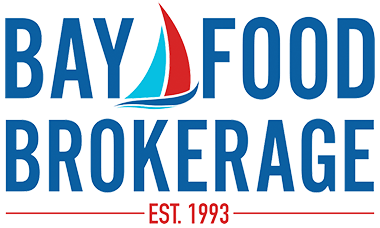
Nearly 5,000 Certified B Corporation companies worldwide tout the “B” logo on their packaging and materials. So, food manufacturers may be wondering what it is and whether they should pursue it.
“Simply put, the B Corp Certification recognizes companies that are good for the world,” said Bay Food’s Executive Vice President Chris Chatterton. “This is an unbiased rating system. It assesses companies and whether what they’re doing is really good for people, communities and the environment.”
Read on to learn more about B Corp Certification and why your company may want to earn this designation.
What is B Corp Certification?
B Corp Certification is administered by B Lab, a nonprofit network “transforming the global economy to benefit all people, communities and the planet.”
Certified B Corporation companies receive this designation for meeting high standards of verified performance, accountability and transparency related to a number of factors. These factors range from employee benefits to charitable giving to supply chain practices to input materials.
But there’s more to B Lab’s movement than just the standards and certification process. The organization’s network also leads economic systems change to support an inclusive, equitable and regenerative economy.
What are the assessment standards Certified B Corporation companies must meet?
B Lab’s standards and the B Corp Certification define social, environmental and governance best practices for businesses.
More than 150,000 businesses worldwide have used the B Impact Assessment. This digital tool can help businesses measure, manage and improve positive impact performance for:
- Environment
- Communities
- Customers
- Suppliers
- Employees
- Shareholders
Then, businesses that receive a minimum score of 80 points on the assessment can take the first step toward certification.
Why Food Manufacturers Should Become B Corp Certified
Two of the five “Retail Trends to Watch in 2022” we blogged about earlier this year were mission-based brands and showcasing sustainability of meat and dairy products.
In short, data shows that many supermarket shoppers are leaning toward brands that have a positive mission. For example, this could include brands that:
- Support or employee underrepresented communities
- Focus on the wellbeing of their customers and workers
- Strongly support nonprofits and even their own foundations
Also, many consumers are paying more attention to how manufacturers are producing the meat and dairy they buy. For instance, consumers look at how companies raise the animals and how production impacts the environment.
Both of these trends align with best practices Certified B Corporation companies follow.
Certified B Corporation companies we work with
Bay Food Brokerage proudly represents clients that are Certified B Corporation companies. This includes The GFB Gluten Free Bites and Tillamook County Creamery Association.
According to Tillamook’s Director of Sales focused on the Eastern U.S., Stephanie Carson, “A Certified B Corporation meets the highest standards of social and environmental performance, transparency and accountability. Being good stewards of cows and farms, of people and products, of our communities and the environment, lies at the heart of everything we do.”
The GFB’s CEO, Marshall Rader, said the following about B Corp Certification:
“From the start of The GFB, we wanted to do things the right way – treat people well, build relationships, and do our part to support the environment and the community. Over the years, we refined that to our core focus of ‘Enrich the lives of our team, our customers, and our planet.’ Becoming a certified B Corp was a way to embody all those actions. And the B Corp certification process is also a great framework to help you understand and improve your positive impact year-to-year.”
Looking for a Southeast retail food broker who understands the value of B Corp Certification? If so, contact ustoday to learn how we can help.
